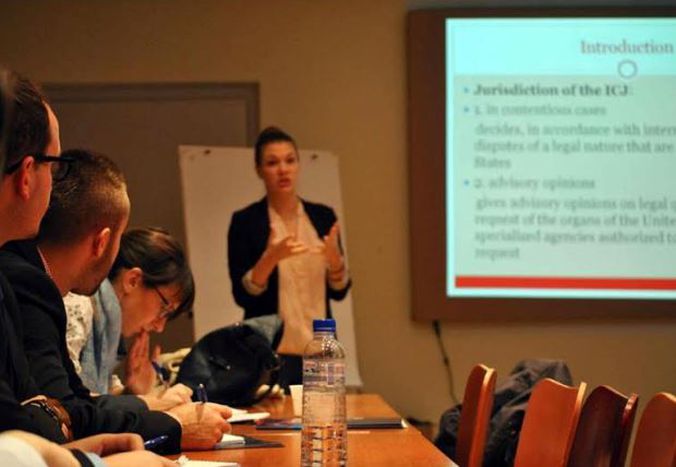
Building Peace Is About Real People, Not Statistical Numbers
Published on
The young Frosina Doninovska from Skopje, Macedonia had a chance to be entitled a Youth Reconciliation Ambassador after participating on a unique gathering of 20 young enthusiasts from Macedonia, Serbia, Bosnia and Herzegovina and Kosovo.
The young Frosina Doninovska from Skopje, Macedonia had a chance to be entitled a Youth Reconciliation Ambassador after participating on a unique gathering of 20 young enthusiasts from Macedonia, Serbia, Bosnia and Herzegovina and Kosovo. During the one-week seminar organized by Youth Education Committee from Belgrade and supported by the Embassy of United Kingdom in Serbia, the participants had a floor to talk about their views on the conflicts in the region, to question the pitfalls in the reconciliation process as well as to hear lectures from remarkable speakers and experts in the area of peace-building in former Yugoslavia. Frosina summarizes her impressions and sends a message to all young people to advocate for peace and reconciliation:
When I received the answer from the organizer that I am chosen to participate on the seminar “Youth Reconciliation Ambassadors”, I was not that much surprised. It was not my first seminar so somehow I expected to be among the selected participants from Macedonia. Soon, the day of departure came. I was prepared to start, to share my experience, because I considered myself to have solid knowledge on the seminar topic. I convinced of the opposite:
1. Still many people identify with the opinion of their own group
Meeting all those young people at one place gathered around the topic of peace-building and reconciliation, I felt that after 20 years, things between us have moved on, that we are the people who bear the change, that we are the future of our countries and through such informal education and training will be able to set relations on a solid basis. One more impetuous conclusion. It is strange how the people are so different when they identify with the group in which they belong, and more important continue to believe in the things that they were told. I could not believe that we actually defended the stories that we all knew. “Our stories”. Who was to blame? Why? Like a time machine to exist among us there and managed to transfer us in the time when all the things started.
2. The past is always around the corner
All those documentaries and videos that we watched, all information and data on the number of dead and missing people during the war, drew us back 20 years ago. In front of us were mothers who cried, mourning for their children: “He had only 14 years old, one mother said. I wish I could see him one more time, or at least to find his grave, so I can go there and cry when I will not be able to endure anymore”. I looked around the room. We all cried, we were emotionally broken. The feelings of sorrow and empathy overwhelmed us. We all compassionate with the mother who lost her son, the children who lost their parents, with the families of the dead and hundreds of missing people.
3. It is all about real stories and people, not just numbers
The desire for a better tomorrow, a better future for us, the youth, and even of our descendants depended on us. We are the ones who bear the change, the change in perception by breaking down the stereotypes. We are all the same. We are all equal. And at the end, we are all people. I was so happy that I had a chance to meet those people. At the beginning of this article, I mentioned that I know everything about reconciliation. I was wrong. I did not know anything. Not one single article, not one single book or the materials that I used during my studies, cannot convey the real picture. A guy explained that he had lost his family during the civil war in Bosnia, all in all 28 people from his extended family died during the bloodshed and violence. 28? It was just a number, a statistics in the history books. But try to hear that from him, your heart will break.



